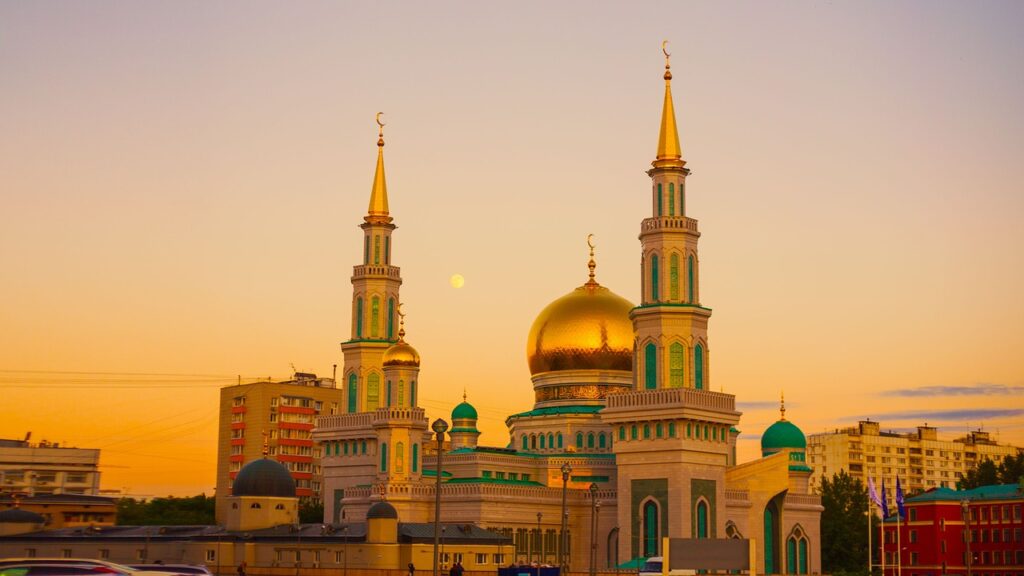Understanding the Incident:
On a seemingly ordinary evening, chaos erupted near a bustling concert hall in Moscow. Gunmen unleashed terror, firing indiscriminately into the crowd and hurling bombs with malicious intent. The result? A scene of unimaginable horror, with 40 lives tragically cut short and countless others forever scarred by the trauma.
The Human Toll:
Behind the grim statistics lie stories of individuals – sons, daughters, friends, and neighbors – whose lives were cruelly taken in an instant. Families torn apart, dreams shattered, and communities plunged into mourning. Each victim represents a precious loss, a stark reminder of the fragility of life in the face of violence.
Heroes Amidst the Tragedy:
Amidst the chaos, tales of heroism emerged as ordinary people became extraordinary in their acts of courage. From concert-goers who shielded strangers from harm to first responders who risked their own safety to save lives, these unsung heroes embody the resilience of the human spirit in the darkest of times.
The Search for Answers:
As the world grapples with shock and sorrow, questions abound. Who were the perpetrators behind this heinous act? What drove them to commit such a senseless massacre? And most importantly, how can we prevent such tragedies from occurring in the future? In our quest for answers, we must confront the uncomfortable truths and address the underlying issues that fuel extremism and violence.
Global Solidarity:
In times of tragedy, the world unites in solidarity and support. From heartfelt condolences to tangible acts of assistance, the international community stands shoulder to shoulder with the people of Moscow in their time of grief. Together, we reaffirm our shared humanity and commitment to peace, justice, and compassion.
Moving Forward:
As we mourn the lives lost and grapple with the aftermath of this senseless violence, we must also look to the future with resolve and determination. Through collective action and unwavering resolve, we can honor the memory of the victims and work towards a world where such atrocities are but a distant memory.
Conclusion:
The massacre near the Moscow concert hall serves as a stark reminder of the fragility of life and the enduring threat of violence in our society. Yet, amidst the darkness, we find glimmers of hope – in acts of bravery, in expressions of solidarity, and in our shared resolve to build a better, safer world for future generations. As we mourn the lives lost and seek justice for the victims, let us also recommit ourselves to the values of peace, empathy, and understanding that bind us together as a global community.
The aftermath of the massacre near the Moscow concert hall prompts introspection and action on multiple fronts. While grief and shock ripple through communities, there is a collective call for change – a demand for greater vigilance, improved security measures, and a reevaluation of societal norms.
In the United States, where the echoes of such tragedies resonate deeply, there is a renewed urgency to address issues of gun violence, extremism, and mental health. The events near Moscow serve as a poignant reminder of the importance of enacting meaningful reforms to prevent similar atrocities from occurring on American soil.
Lawmakers face mounting pressure to enact legislation that strengthens background checks, closes loopholes in gun laws, and invests in mental health resources. Advocates and activists amplify their voices, demanding accountability from those in power and mobilizing communities to push for change.
At the grassroots level, individuals come together to support victims’ families, raise awareness about the root causes of violence, and foster dialogue around solutions. From candlelight vigils to community forums, people across the country unite in solidarity, determined to turn their anguish into action.
In schools and universities, educators confront the challenge of addressing difficult topics with sensitivity and compassion. Discussions about safety protocols, crisis preparedness, and the impact of violence on mental well-being become essential components of the curriculum.
In the digital realm, social media becomes a platform for mourning, activism, and information-sharing. Hashtags such as #NeverAgain and #EndGunViolence trend as people from all walks of life lend their voices to the call for change.
Meanwhile, law enforcement agencies reassess their strategies for combating extremism and domestic terrorism. Coordination between local, state, and federal authorities strengthens as they work to identify and neutralize threats before they escalate into violence.
Beyond borders, the international community stands in solidarity with Russia, offering support and assistance in the aftermath of the tragedy. Diplomatic efforts to address the root causes of extremism and promote peace gain momentum as leaders strive to prevent similar atrocities from occurring elsewhere.
As the world mourns the lives lost in the massacre near the Moscow concert hall, there is a collective resolve to honor their memory through action. From legislative reforms to community initiatives, from heartfelt gestures of solidarity to bold advocacy for change, each step forward brings us closer to a future where such senseless violence is but a distant memory.
In the midst of darkness, our resilience lies in our unity. In the wake of tragedy, we find hope in resilience. And in the memory of the lives lost, we find the inspiration to build a better world for generations to come.


